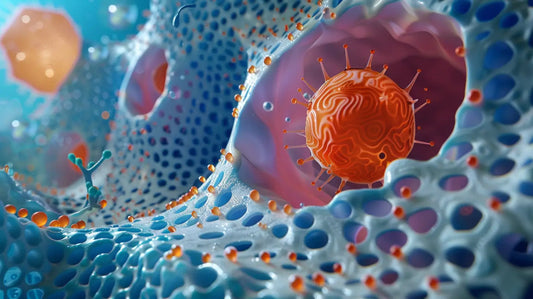Hydrogen Inhalation Therapy Benefits Severe COVID-19 Patients
UpdatedOur Commitment to Accuracy and Objectivity
Ocemida is committed to delivering reliable and unbiased information. Our editorial team, comprised of experienced editors and medical experts, meticulously reviews every article and guide to ensure the content is accurate, up-to-date, and free from bias.
Rigorous Fact-Checking Process
To uphold the highest standards of accuracy, we adhere to the following fact-checking guidelines:
Trusted Sources: We only cite reputable sources, such as peer-reviewed journals, government reports, academic and medical associations, and interviews with credentialed healthcare professionals.
Evidence-Based: All scientific claims and data are supported by at least one credible source. Each article includes a comprehensive bibliography with full citations and links to the original sources.
Internal Linking: While we may include internal links to other relevant Ocemida pages for better navigation, these links are never used as primary sources for scientific information.
Expert Review: A member of our medical and scientific expert team provides a final review of the content and cited sources for all articles and product reviews related to medical and health topics.
By following these rigorous standards, Ocemida strives to provide readers with reliable and informative content.
Share with a friend
Coronavirus disease 2019 (COVID-19), which is caused by the severe acute respiratory syndrome coronavirus 2 pathogen (SARS-CoV-2), has already infected more than 55.1 million people worldwide. Severe forms of the disease have also caused more than 1.31 million deaths.
Researchers from Sichuan Provincial People’s Hospital in Chengdu, China have investigated the possibility of hydrogen therapy being used on COVID-19 severely ill patients. Their findings were published in Frontiers in Pharmacology, the most recent issue.
Background
According to the authors, hydrogen has anti-inflammatory, hormone-regulating, and antioxidant properties. It is also known to resist immune-led cell death (or programmed cell deaths) within cells.
SARS-CoV-2 has been known to cause a severe inflammatory reaction in certain individuals. This type of cytokine thunderstorms can be fatal in severe COVID-19 cases. Cytokine storms can cause lung damage. Researchers write that hydrogen therapy is known to cause “ropy stool drainage” which can reduce the severity of the disease. It can also be used as adjuvant therapy for severe diseases.

Inflammatory markers
The team explains that severe COVID-19 can cause a significant rise in plasma levels as well as inflammatory markers like IL-2 (Inter Leukin), IL-7 (Inter Leukin), IL-10 (Tumor necrosis factor), and TNF-a. These cytokine storms, which have these features, are currently not being treated.
Hydrogen therapy
A 2007 Nature study showed that two percent hydrogen can be inhaled to eliminate the peroxynitrite anion and hydroxyl radical. Researchers found that inhaling hydrogen could be used to correct ischemic injury in rats suffering from ischemic injury. Researchers of the current study noted that hydrogen therapy has been gaining a lot of attention from critical care specialists and researchers since then.
According to the team, hydrogen is known for its properties of “anti-oxidation, anti-inflammation, and hormone regulation”. This could be useful in a variety of diseases. The small hydrogen molecule can reach the alveoli, and could therefore be useful in treating lung diseases.
Cytokine storm
Cytokine storms are characterized by a high level of pro-inflammatory cells and mediators known as cytokines. These include interleukins (such IL-1b, IL-6), tumor necrosis factor (TNF-a), and interferon (IFN-g).
These cytokines are activated once they have been activated. They activate NADPH oxidase which is found in white blood cells and leukocytes. This activates reactive oxygen species (ROS) such as superoxide, hydroxyl radicals, and singlet oxygen. They are known to cause harm to many organs.
SARS-CoV-2 causes severe disease by inducing an interferon g-related cytokine cloud. This cytokine storm can also be seen in avian flu A H5N1 caused by high viral loads and Middle East respiratory syndromes (MERS), which is a beta coronavirus of the same family as SARS. It is often caused by high IL-1 b and INF-g levels, IP-10, G-CSF-1, MCP-1, and MIP-IA.
A hydrogen is an option for the treatment
Many drugs can be used to treat severe COVID-19. These patients have also been treated with anti-IL6 receptor therapy. Researchers have found hydrogen can also suppress the inward penetration of WBCs, such as neutrophils, and macrophages within lung tissue. It also blocks the action of NFKB and MPO. Hydrogen reduces inflammation and reduces cytokine production in lung tissue. This includes TNF-a and IL-1, IL-6, and HMGB1. Hydrogen can also be used to remove ROS (including hydroxyl and peroxynitrite ions) and restore normal metabolism of the ROS and other ROS.
According to the researchers, studies have shown that hydrogen treatment can lower levels of TNF-a and IL-1 in lung tissue. Hydrogen inhalation can reduce inflammation of the airways seen in asthma patients and those with COPD. It takes only 45 minutes. The team stated that hydrogen inhalation can reduce inflammation by inhibiting the Rho/ROCK pathway and increasing ZO-1 expression. It also protects lung tissue cells by increasing cell-to-cell permeability and reducing lung injury.
The researchers speculate that hydrogen could be used to treat severe COVID-19 lung injury patients.
Hydrogen and its effects upon oxidative stress
Researchers explain that superoxide dismutase is an enzyme that protects the body from antioxidant damage. Hydrogen therapy can reduce lung tissue malondialdehyde and increase SOD’s action.
Researchers found that COVID-19 patients who are critically ill often experience multiple organ failures. Hydrogen, thanks to its antioxidation properties and anti-apoptosis properties, may help protect many organs, such as the heart and nervous system.
Hydrogen decreases viscous secretions in COVID-19
Viscous secretions build up in the alveoli, clogging the terminal bronchi. Patients can be helped by oxygen therapy that includes non-invasive ventilator-assisted ventilation and nasal high-flow oxygen inhalation. Researchers also noted that the use of positive pressure ventilation could lead to the accumulation and worsening of hypoxia or the lack of oxygen at the terminal.
When hydrogen-enriched water is used in mucus production in rats with COPD, smog-induced COPD, it has been shown to reduce hypoxia and relieve the symptoms. According to the team, early hydrogen inhalation can promote sputum dilation, small airway resistance, and relief from dyspnea.
Is hydrogen therapy safe?
There are safety concerns about hydrogen being flammable and explosive. However, less than 4 percent of hydrogen combined with oxygen at room temperatures is not combustible. Hydrogen use does not cause any side effects.
Here is an official study on the recent progress toward Hydrogen Medicine:
https://www.ncbi.nlm.nih.gov/pmc/articles/PMC3257754/
References
Table of Contents










































